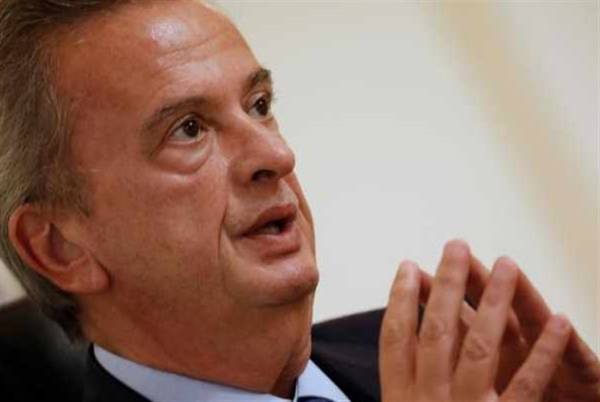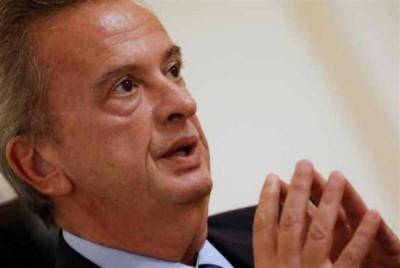The Governor of the Central Bank of Lebanon, Riad Salameh, responded to accusations of making financial transfers abroad.
The National News Agency reported that Riad Salameh issued a statement denying the allegations of making financial transfers abroad, confirming that he is committed to existing Lebanese and international laws, and cooperating with all those concerned about Lebanon and its financial and banking situation both domestically and internationally. Salameh’s statement further asserted that all allegations regarding supposed financial transfers he made abroad, whether in his name, his brother's name, or his assistant's name, are fabrications and false news without any basis, noting that there will be legal action against everyone who has published or continues to publish these allegations with the intention of causing further harm, hence the need for clarification.
It is worth noting that Hassan Moughnieh, president of the Lebanese Depositors Association, mentioned yesterday that some banks are selling checks for amounts of one million dollars and above through intermediaries and money changers for 39% of their value, stressing that the delivery takes place outside Lebanon, specifically in Dubai. He explained that if an account holder possesses one million dollars, they receive 390,000 dollars in cash abroad, and their account is then canceled, indicating that the bank profits 610,000 dollars. In this way, banks are alleviating their debts.
Additionally, it is noteworthy that the Lebanese Minister of Justice in the caretaker government, Marie-Claude Najm, received a request for judicial cooperation from the Swiss judiciary today regarding providing legal assistance concerning the financial transfer dossier related to Central Bank Governor Riad Salameh. She stated: "I submitted the Swiss judicial cooperation request concerning the Governor of the Central Bank of Lebanon to the public prosecutor for necessary actions." Najm confirmed that the Central Bank of Lebanon is ready to provide all necessary information for the "judicial audit" requested by the international community.
The judicial audit of the Central Bank’s accounts is considered one of the main components of the economic recovery plan that the government approved for negotiations with the International Monetary Fund before those negotiations failed, and it was also included in the roadmap that France prepared to assist Lebanon in emerging from the economic collapse.




